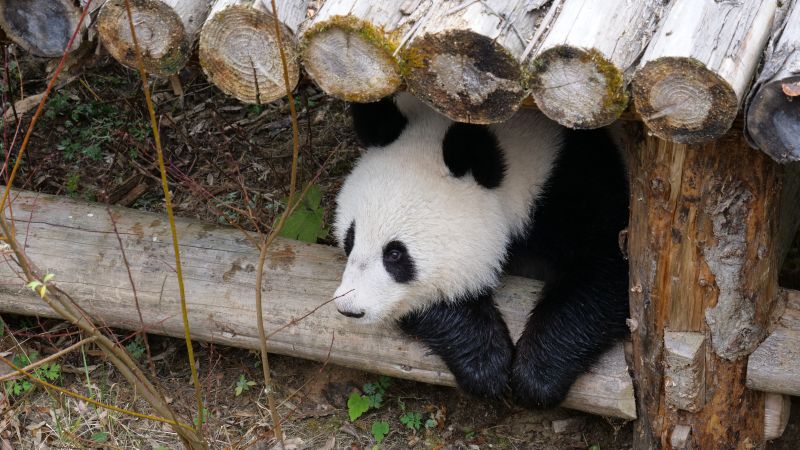
By RYOKO NAKAMURA, Rafu Japanese Staff Writer
“Isamu, breakfast is ready,” his grandmother says as she carefully places a tray loaded with homemade Japanese food in front of the closed door of his room and leaves quietly. After she goes downstairs, the door slowly opens. Isamu, in pajamas, takes the tray and closes the door.
Approximately 700,000 young people in Japan refuse to leave their room and isolate themselves from the outside world to avoid any social contact. They are called hikikomori,which directly translates as “withdrawal.”
This phenomenon has been a serious social issue in Japan, as it contradicts significant cultural values, such as harmony within a social group, widely understood non-verbal communication, hierarchy based on age and status, and the protection of family reputation.

When Landis Stokes, an independent film director, was writing a story about a man who stays at home playing video games, using the Internet, and talking on the phone all the time, Kana, Stokes’ Japanese wife, remarked, “Oh that sounds like hikikomori.”
Stokes had never heard the word before.
Kana briefly explained what it meant, but he couldn’t believe how extreme it is. As he researched, he was amazed. “Although it is such a Japanese thing, the more I researched and learned about it, the more I could relate to it.” He decided to make a film about hikikomori.
The short film “American Hikikomori” is about a Japanese teenager, Isamu Fujiwara, battling to adjust to American culture after moving here from Japan with his father and grandmother. He eventually isolates himself from everyone due to outside pressure.
In a typical Japanese family dynamic — a father devoted only to work and a grandmother nurturing her grandson’s social withdrawal by bringing him food — the film explores Isamu’s emotional struggles.
Growing up in a military family, Stokes and his family moved around quite often. He was born on a U.S. Air Force base in Germany; he then lived on several different bases in U.S. cities. When his father retired in the late 1980s, his family settled in Baltimore, Md.
“Around that time, Baltimore wasn’t exactly the best place to be. We lived in a nice neighborhood, but it was a culture shock. I really didn’t get along with my classmates,” said Stokes, who is African American.
The schools on U.S. bases that he attended were predominantly white, so he spoke standard English and didn’t have a street mentality, which made him stand out at school and in the neighborhood. People told him, “You sound like a white boy” and “You’re not black enough.”
When he couldn’t find a place where he fits in, he shut himself inside the house most of the time. “My reason why I was never anything like hikikomoriwas because of my parents. They never allowed me to stay in my room all day long,” he said.
It was around the same time that he discovered his passion for drawing. “Every time someone pushed me to a locker or stole my shoes, I just turned to my drawing. Art was how I could channel my frustrations and anger.”

One of his teachers in elementary school recognized his artistic talent and put him in a special art class, which led him to another art class in middle school. He then went to a performing arts high school, where he finally found his “home.”
When Stokes started writing “American Hikikomori,” he didn’t know much about Japanese people or culture, so he researched a lot and created the film based on how he related to the phenomenon.
“What helped me with developing the script was that Kana and all her friends had very interesting experiences simulating a culture,” he said. “Based on their experiences, I don’t think anybody would really think about this stuff either, so we had to make sure to include that in the movie.”
Stokes determined that all the actors needed to be the first-generation. “Hollywood movies don’t reflect what the real life looks like. The person has to carry the manner that is not from here.” It took them a year to find Japanese Issei actors in L.A.
Stokes finally found a lead actor, Yuto Serata, who could bring tremendous authenticity to the role. Serata was at one point hikikomorihimself. He had a tendency to withdraw from the outside world due to peer pressure, but he pulled himself out of it by just going to his own comfort zone: playing soccer.
As part of the research for the film, “I had an opportunity to visit Japan,” Stokes recalls. “There, I was like ‘I get it now.’ The language barrier was the number one frustration. People assume because you don’t speak the language, you are not smart. That was a big eye-opener. It’s something I took for granted and hadn’t considered.”
Stokes wants people to learn from the film that this extreme phenomenon really exists. And he wants this film to be a discussion piece about how Americans perceive foreigners.
The film was shown at the D.C. Asian Pacific American Film Festival and the Ithaca Pan Asian Film Festival. Stokes is currently looking for a location for a public screening in Los Angeles.
For more information, visit the website at www.americanhikikomori.com. If you know of a potential screening venue in Los Angeles, contact Stokes at [email protected].
Previous:NAVI qualify for BLAST Fall Final over G2
Next:Venetian Ondo
 ‘Flicker in Eternity,’ ‘Go For Broke!’ at JANM
‘Flicker in Eternity,’ ‘Go For Broke!’ at JANM
 Robert Mueller's testimony was picked up by all the late night hosts
Robert Mueller's testimony was picked up by all the late night hosts
 With autonomous valet parking, your Mercedes
With autonomous valet parking, your Mercedes
 Tesla driver kills pedestrian with Getaround rental
Tesla driver kills pedestrian with Getaround rental
 FILM: Mixed
FILM: Mixed
 Hate new Twitter? How to get back old Twitter.
Hate new Twitter? How to get back old Twitter.
 'Home Alone,' 'Iron Man' movie posters get delicious cheese makeovers
'Home Alone,' 'Iron Man' movie posters get delicious cheese makeovers
 Why are these descriptions of cheese so horny?
Why are these descriptions of cheese so horny?
 Entertainment Lineup for Tanabata Festival
Entertainment Lineup for Tanabata Festival
 Reddit introduces 'community awards' to encourage healthier conversation
Reddit introduces 'community awards' to encourage healthier conversation
 Dr. Jimmie Yamaguchi, Figure Skater’s Father
Dr. Jimmie Yamaguchi, Figure Skater’s Father
 Heat records in Europe are dropping like flies
Heat records in Europe are dropping like flies
 Elon Musk's main worry about the record
Elon Musk's main worry about the record
 Best of San Diego Comic
Best of San Diego Comic
 ESL Impact League Season 1 Finals team list set
ESL Impact League Season 1 Finals team list set
 Snapchat is more popular than ever
Snapchat is more popular than ever
 Reddit introduces 'community awards' to encourage healthier conversation
Reddit introduces 'community awards' to encourage healthier conversation
 Please use ethernet cables whenever you can. Please.
Please use ethernet cables whenever you can. Please.
 Practice Begins for Nisei Week Ondo
Practice Begins for Nisei Week Ondo
 With autonomous valet parking, your Mercedes
With autonomous valet parking, your Mercedes
Verizon outage phone stuck on SOS: What to doVerizon on outage: 'Service has started to be restored'Elon Musk posts first glimpse of SpaceX's finished Starship test vehicleSpaceX ends historic year with its final launch of 2018The strangeness of Japan's decision to start openly hunting whalesHow to watch TAMU vs. Arkansas football livestreams: kickoff time, streaming deals, and moreClemson vs. Stanford football livestreams: Kickoff time, streaming deals, and moreAt the Safari CaraboboBeyoncé is promoting a plantGalápagos tortoise, feared extinct, has first sighting in 100 years Mainland slams DPP authorities for selling out Taiwan to seek independence Xinhua Commentary: How Lai Ching Mainland calls for cross Feast for the Eyes and Taste Buds at Delicious Little Tokyo Woman Arrested Following Police Pursuit from Little Tokyo to Boyle Heights Matsui Statement on the Passing of Joan Didion Remembering Jacqueline Avant University of Michigan Appoints Santa Ono as New President Taiwan holds worship ceremony for mythical ancestor Fuxi Konko Church Summer Festival Bazaar
0.1436s , 14384.5625 kb
Copyright © 2025 Powered by 【download VIDEO sex thai Xem phim H谩潞颅u v谩禄鈥?m谩潞路t tr谩禄聺i Thai Ver.- Descendants of the sun】'American Hikikomori',Global Hot Topic Analysis